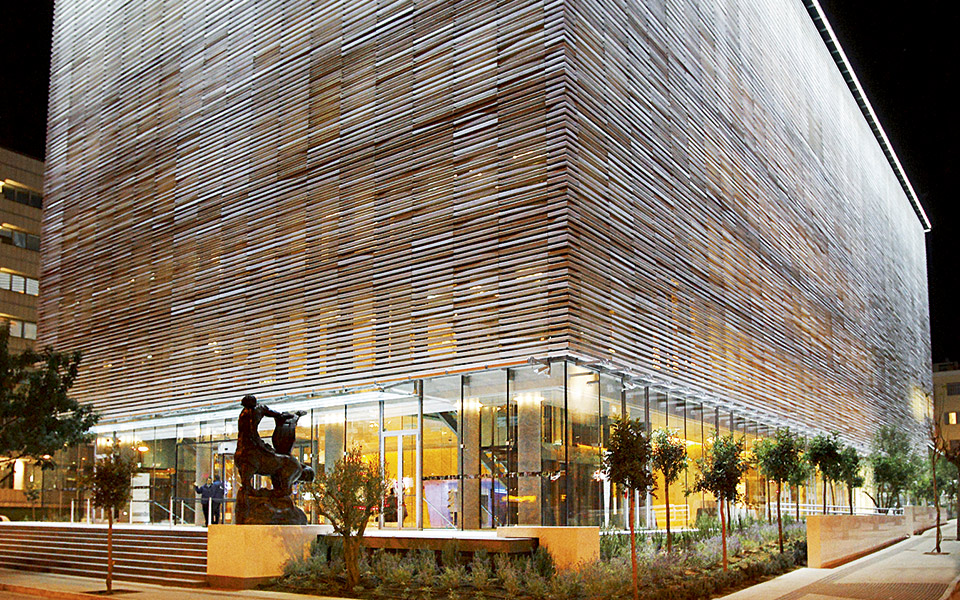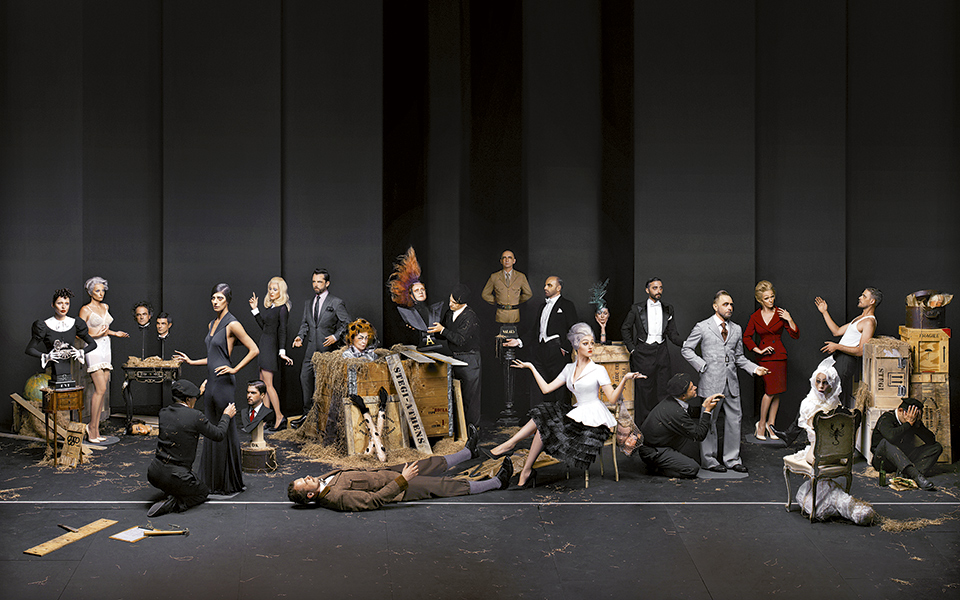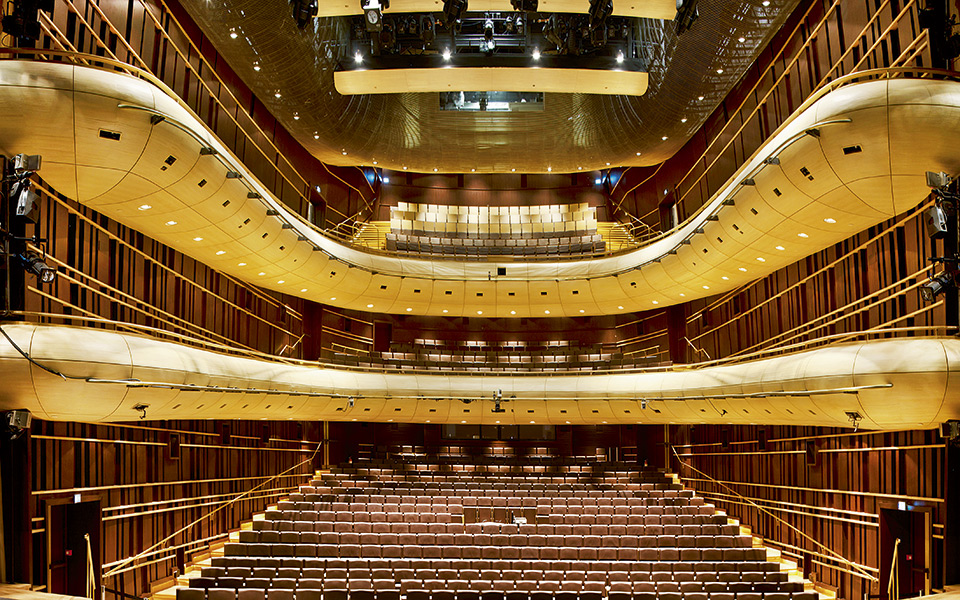When the Onassis Cultural Center first opened its doors on December 7, 2010, Athens was like a boiling cauldron. A beacon on high-speed Syngrou Avenue, the façade says it all about the architectural philosophy behind this impressive edifice: a solid square banded in white marble slats that offer glimpses of the interior. It was a counterproposal on how we live our lives, inviting us to be alternative and inquisitive.
The shock of bankruptcy was still raw when the OCC first started operating. Everything we took for granted was put into question and economic losses came in quick succession. What did the OCC mean at that time and how has its personality been shaped five years on? And what does it mean when most of its shows are sold out even as the crisis continues to gnaw at incomes and push up unemployment?
As constants, be they in the political system or people’s daily lives, collapsed, new relationships of trust began to emerge: movements to improve life in the city, synergies and initiatives to help the poor. Greece was straddling two different time zones, past and present, with the future seemingly lost somewhere on the horizon and culture, in its broadest and narrowest sense, was the only thing that could bring it back as a prospect. The OCC took down the walls between the haves and have-nots in one fell swoop by introducing educational programs and a cut-price ticket policy. Its audience from the onset was basically young, though it had its fair share of older patrons who were open to new artistic experiences and forms of expression. In a relatively short period of time, it succeeded in attracting a public that is well informed, inquisitive, unconventional, open to getting around and asking questions, and supportive of new things in art, in public discourse and in culture. The OCC was a new arrival that built on the momentum created by its predecessors like the Athens Concert Hall, the Greek Festival, the Thessaloniki and Athens international film festivals and dozens of pioneering theaters, all of which through the years shaped a discerning public.



© Thanos Samaras
“One key word emerges throughout the OCC’s program: contemporary. There is a common aesthetic, a common angst that unite Schaubühne with William Kentridge’s Ubu and the Truth Commission and a show by a Greek group like RootlessRoot or Blitz. These are all artists that are in conversation with the present,” explains OCC Deputy General Manager Afroditi Panagiotakou.
Without the lively dialogue cultivated by the OCC with the city, it is unlikely there would be an audience for the experiential narratives of Kentridge or Akram Khan, the artistic interventions of Boltanski and Bob Wilson or the Fast Forward Festival that provides a platform for new technologies and their applications in theater, dance and music. How else would we be witness to the constant enticements of Rimini Protokol through its unconventional, politicized documentary-theater, or the miniature spectacles of Michèle Anne De Mey and Jaco Van Dormael, who introduced us with Kiss & Cry to a whole new world of movement and emotion? In the performance Refuse the Hour, Kentridge says that time is also geography. And even if a black hole the size of a “full stop swallows the sentence,” there is always “a suitcase filled with thoughts, stories and an ancient disc made of stone.” This, in a way, is the function of the OCC: a suitcase for the city.
The OCC is also expanding by developing the Onassis Cultural Center in New York into a showcase of Greek artistic trends and innovation, right on Fifth Avenue, in the heart of Manhattan, launching with the exhibition Narcissus Now.
The 300,000 people that flock through the OCC’s doors every year are testament of success in building trust and addressing need. Trust in the fact that they are on a common journey along paths that are chosen yet unexpected. And need because a new social identity is being built around the OCC, one that is composed of questions, ideas and emotions that make us more tolerant and more open to coexistence with the new and the other.
“In a relatively short period of time, it succeeded in attracting a public that is well informed, inquisitive, unconventional, open to getting around and asking questions, and supportive of new things in art, in public discourse and in culture. ”











